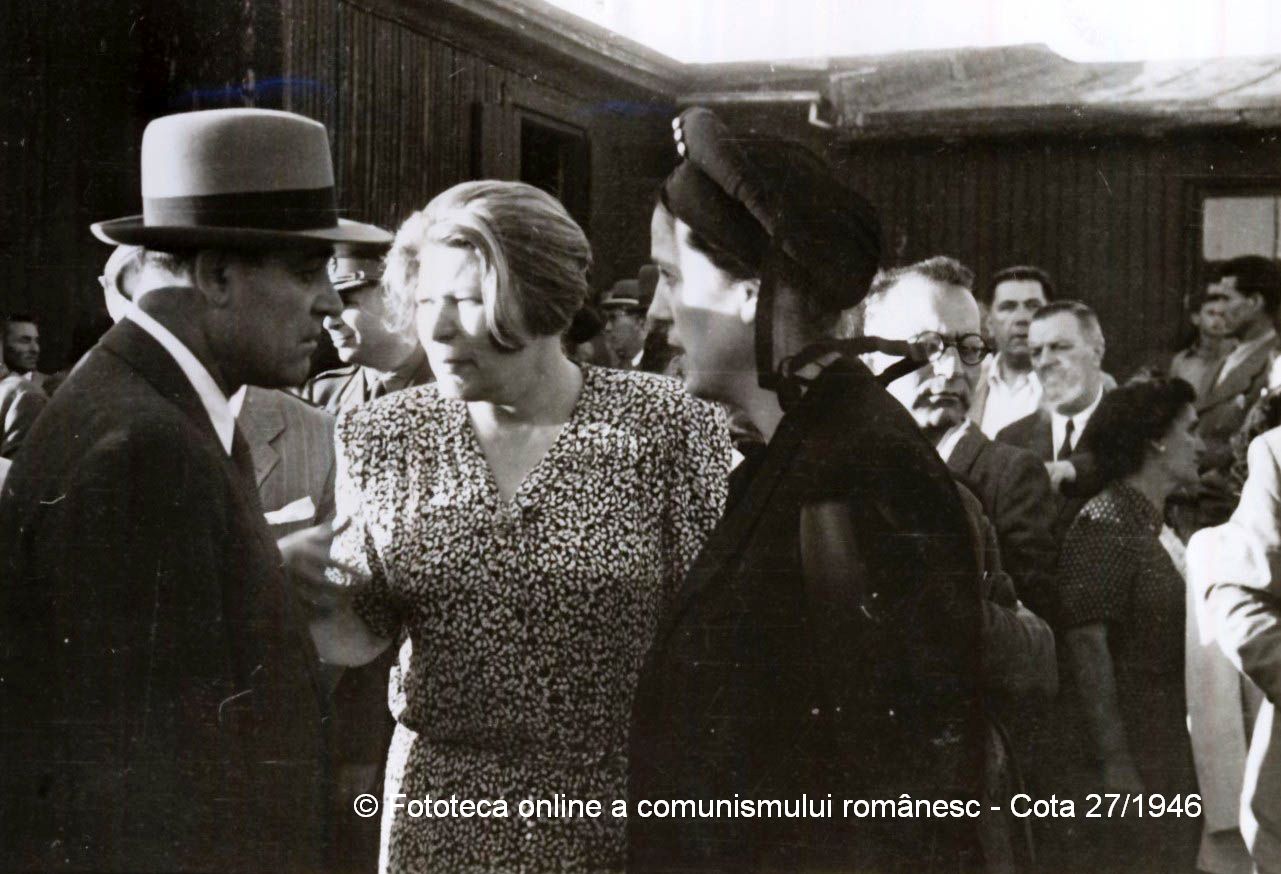Ana Pauker
The early days of communism in Romania and their troubled history

Radio România Internațional, 30.09.2024, 14:00
Ana Pauker is one of the most conspicuous figureheads in the history of the communist regime in Romania. Ana Pauker played a crucial part in the team that instated the regime of the Communist Party in Romania, between 1947 and 1952. She was also a member of the Petru Groza government, the Communist Party’s first government in Romania. Ana Pauker also held positions in the Romanian Communist Party’s top-notch hierarchy, as well as in the hierarchy of then the Soviet Union’s Communist Party.
Ana Pauker was born in the eastern Romanian county of Vaslui, in 1893. Her name was Hana Rabinsohn and she was born into a Jewish family: her grandfather was a rabbi. In France, in 1920, Hana met her future husband, Marcel Pauker, also a Jew. The Bucharest-born Marcel Pauker was a radical communist, and his wife Ana joined him in then the Comintern’s activities.
Ana Pauker became a Soviet agent; she was arrested in 1922 and 1935. In 1941 she was released from prison and went to the then USSR. While still in prison, in 1938 Stalin had her husband executed on the grounds of Marcel Pauker’s being a Western spy. During the war, in Moscow, Ana Pauker was the head of the exiled Romanian group of communists, known as the Moscow faction.
In 1994, Radio Romania’s Oral History Centre interviewed Ana Pauker’s son-in-law, Gheorghe Brătescu. He took the liberty to quote from a Soviet document, whereby his mother-in-law was appreciated for her qualities but also criticized for her inabilities:
”Her characterization, dated 1946, among other things, included the following: ‘among the RCP leaders, comrade Ana Pauker is the best prepared, theoretically, having a great influence among party members. That is why she is the one who, in fact and in all respects, leads the activity of the Romanian Communist Party’s Central Committee. She is very popular with the Romanian people as a result of her illegal communist activities of the past. Apart from her activity in the position of Central Committee Secretary, she heads the parliament’s communist group. She ensures the RCP’s collaboration with the other parties of the Democratic Bloc. She plays an active part in the activity of Women’s International Anti-Fascist Federation. Nevertheless, comrade Ana Pauker has a major weakness as an organizer. She does not use her influence hard enough, but also her authority, for the strengthening of the party ideologically and in terms of its organization’. “
For Ana Pauker, the end of World War Two and the presence of the Soviet Army in Romania acted as a true launching pad, giving her access to then the political power’s top level. Ana Pauker was elected Secretary of the Romanian Communist Party’s Central Committee. After the forced abdication of King Mihai I on December 30, 1947, she was appointed Minister of Foreign Affairs.
The early 1950s meant her downfall. In 1952, then the communist leader Gheorghe Gheorghiu-Dej began the elimination of the competing groups. Ana Pauker was a member of such a group, which also included her comrade Vasile Luca. Charged with right-wing deviationism and sabotage, the members of the group were given a prison sentence. Lucretiu Patrascu, one of Gheorghiu Dej’s avowed opponents, was executed. In 1953, Ana Pauker received a home confinement sentence. In 1954, she was expelled from the Communist Party. She lived until 1960 and earned her keep working as a translator of French and German with the Political Publishing House, yet officially she did not have the right to sign her work. She was a member of the translators’ team that created the first complete Romanian-language edition of Marx and Engels’ works.
After 1965, then the new leader Nicolae Ceaușescu tried to rehabilitate some of the victims of Dej. Gheorghe Brătescu said Ana Pauker was not among them. Gheorghe Bratescu gave us details about her life.
”Never ever has there been an attempt to do that. Moreover, she did her work at the Political Publishing House in quite abnormal circumstances. She didn’t even get her salary from there; it was sent to her through the cleaning woman. The latter dispatched the materials the former was supposed to write, and on that occasion, the salary was being sent to her.
As long as Gheorghiu-Dej lived, she was considered the most dangerous person, especially after the killing of Patrascanu. Which explains why, as regards her political activity, it was not until 1968 since her political activity had been spoken of. Moreover, in 1961, one year after she died, all her decorations were withdrawn from her. In other words, even her memory was somehow rated as being dangerous, so there was no such thing as a possible attempt of recovering. “
1953 and 1960, paying visits to Ana Pauker were several people, among whom lawyer Radu Olteanu, defender of the communists and anti-fascists in the 1930 trials. But Ana Pauker also had another visitor, a former inmate. With details on that, here is Gheorghe Brătescu once again.
” She had no problem paying a visit, she was someone who did time with Ana Pauker, her name was Maria Andreescu, she was known as the Little Old Woman. As far as we could see, she also maintained contact with some of the old acquaintances, friends, comrades, admirers of Ana Pauker. When Ana was admitted to the Colentina hospital, then Maria Sarbu came and paid her a visit. And at the funeral, perhaps spurred by this Little Old Woman, that treacherous, opportunistic old man Gheorghe Cristescu participated, he somehow represented the old socialist movement. “
Ana Pauker was, just like many others, an individual bedazzled by the ideals of a perfect society which, in practice, translated into terror. And she left this world defeated by its harsh reality.





























